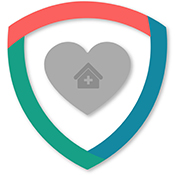 You have found the home-care provider or facility you want to help with the care of your aging loved one, but how does one pay for this? If your loved one doesn’t have long-term health insurance, things can get expensive very quickly. This government website answers the many confusing questions involved with the financial end of providing care.
You have found the home-care provider or facility you want to help with the care of your aging loved one, but how does one pay for this? If your loved one doesn’t have long-term health insurance, things can get expensive very quickly. This government website answers the many confusing questions involved with the financial end of providing care.
Included in this link is a search engine for finding facility care, home care, and just about anything else you can think of provided in this resource. The fact that it is not a private industry that receives pay for recommendations is a good way to double check on what’s available to your family to care for your loved one.
 One of the most difficult situations to deal with when caring for a loved one with a brain disease such as dementia, is when the patient cannot clearly communicate his/her wants and needs. Even when we have provided the necessary home-care or nursing care for their safety, we worry how their emotional safety and if their needs are being met. How can our loved ones communicate needs, interests and desires when they can’t clearly communicate?
One of the most difficult situations to deal with when caring for a loved one with a brain disease such as dementia, is when the patient cannot clearly communicate his/her wants and needs. Even when we have provided the necessary home-care or nursing care for their safety, we worry how their emotional safety and if their needs are being met. How can our loved ones communicate needs, interests and desires when they can’t clearly communicate? When do normal signs of aging transform into issues that require in home health care? It can be difficult to decide how much care, if any, is needed for a loved one. In
When do normal signs of aging transform into issues that require in home health care? It can be difficult to decide how much care, if any, is needed for a loved one. In